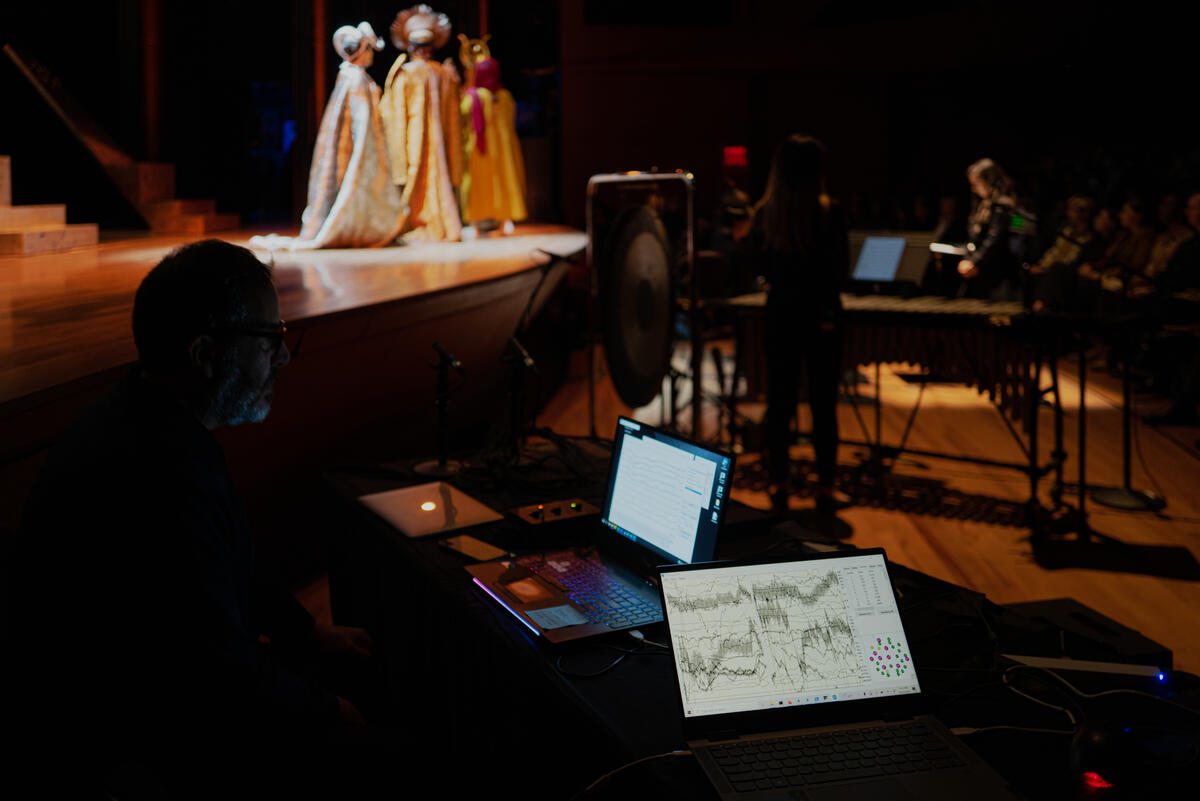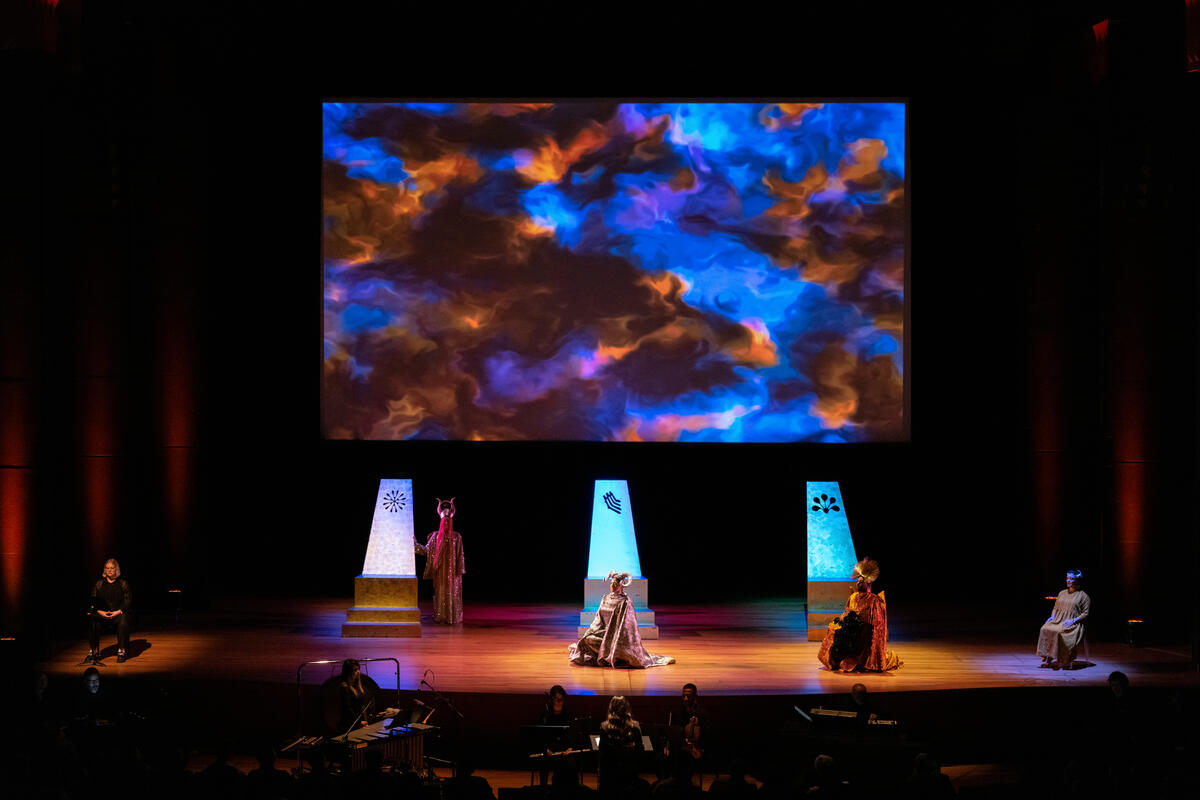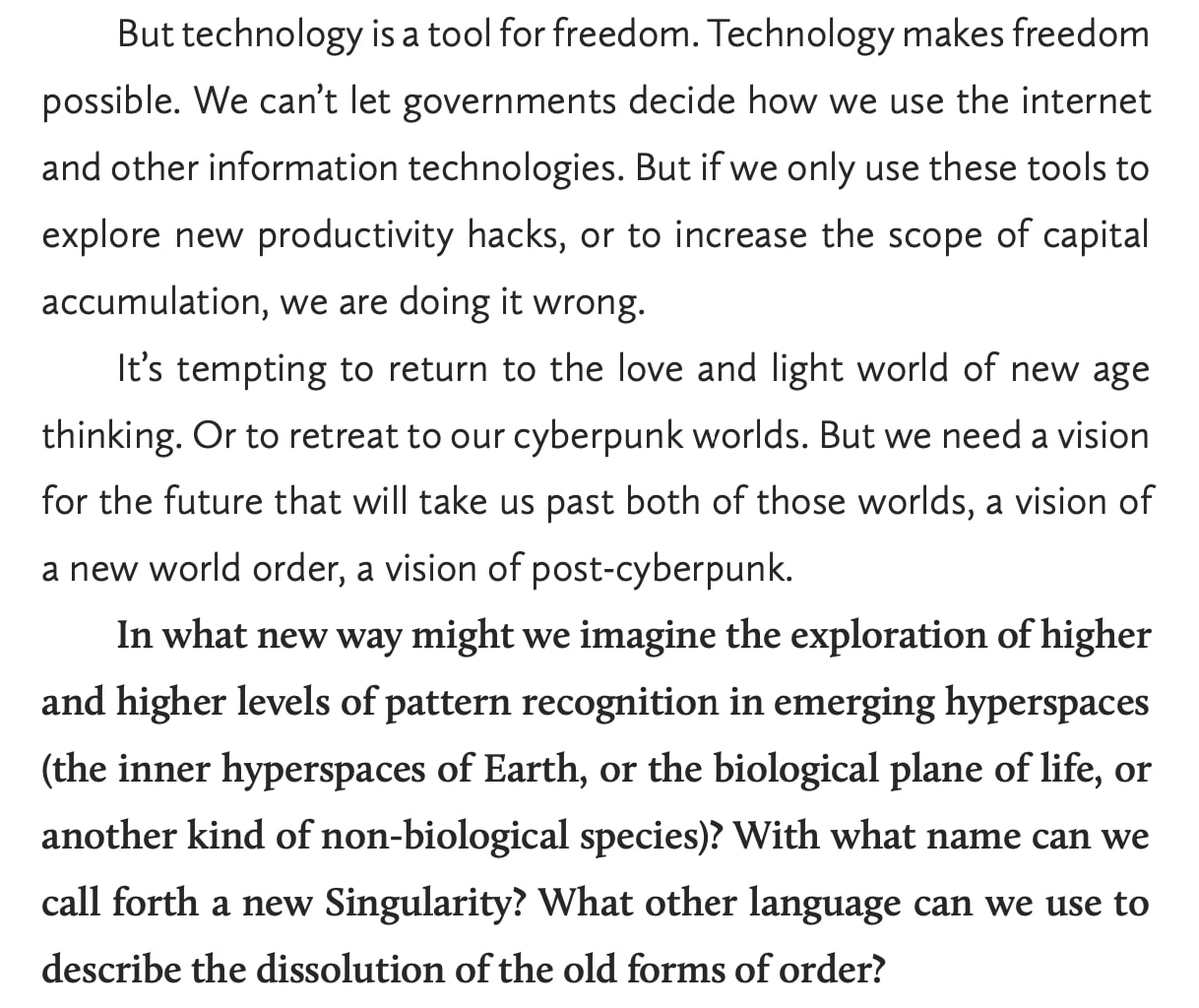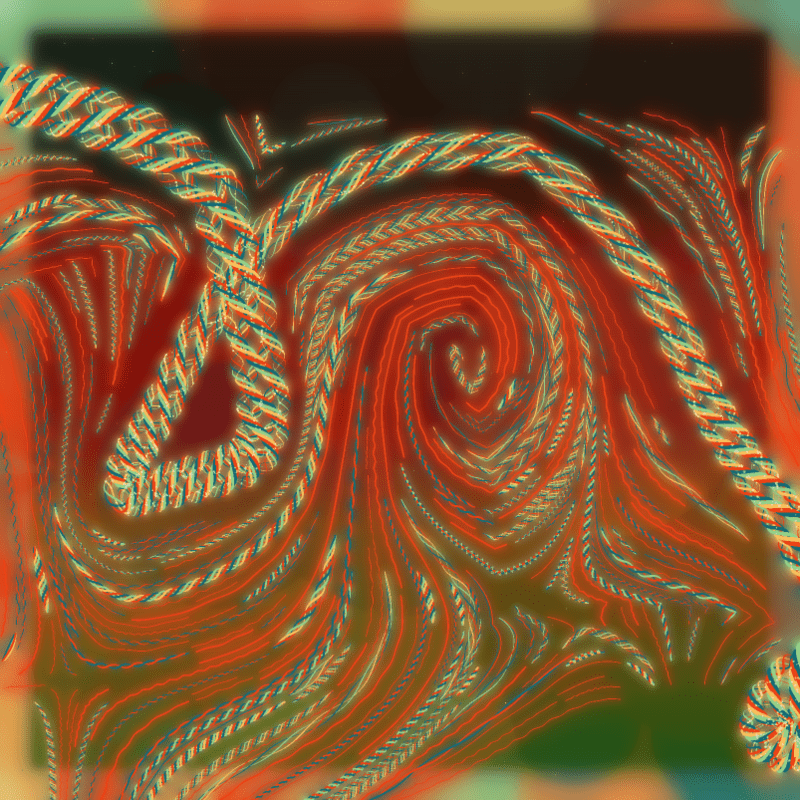The Hirsch Truth: Episode 10
In the tenth and final episode of her NFT review series, Ann takes a moment to recall all that she's learned, and shares some "Hirsch Truth-isms" about the wild world of crypto art.



K Allado-McDowell is a creative, artist, and technologist known for musical collaborative AI work, and for three books co-authored with ChatGPT-3. These three volumes are Pharmako-AI (2020) and Air Age Blueprint (2023), both hybrid theoretical-spiritual-literary texts about the New Age theologies and approaches to self that AI inspires, and Amor Cringe (2022), a shorter “novelette” exploring the machine-replicable trend drive of social media. One of the reasons I was initially excited about Allado-McDowell’s literary work is that I have long been a reader and critic of algorithmically assisted literature, starting with earlier traditions—ancient texts made using dice randomization, medieval and early modern experiments with combinatoric literature and music, Oulipo and formalist restriction—and moving into code. Independent presses like Inside The Castle and 11:11 have been cultivating a vibrant subculture of such literature, and the field is growing vaster with the availability of ChatGPT and other language models as consumer products. The promise of this work is a modernist shock of the new in prose—theoretically offering surprising turns of phrase that could only be authored by an algorithm, or new forms that would escape a human author alone. But while early formal experiments are valuable as historical benchmarks, they often don’t stand out for their quality of literary composition. Allado-McDowell’s oeuvre so far falls into this category—the methodology of using GPT-3 makes it of continuing interest as we move toward a greater social engagement with large language models, but I am not sure it merits critical consideration as literature. Literary standards require more than mere readability, but also deftness, stylistic mastery, and a self-aware command of form, which Allado-McDowell’s contributions lack.

Pharmako-AI consists of experimental conversations with GPT-3 about nature and the relationship of the self to the world in the age of machine intelligence. Air Age Blueprint extends these into a work of autofiction in which Allado-McDowell is themself a flatteringly depicted character trying to find a way to make sense of the new AI-inflected world, in a shaggy, unclear plot that slingshots from Peru to California, from human mind experimentation to extra-human technology. The premise of Allado-McDowell’s project across these two volumes is that “the Singularity” (Artificial General Intelligence) will save us all alongside a shamanist practice of becoming one with nature through an engagement with AI—which, like ayahuasca, is both a medicine and a poison. Thematically, ayahuasca plays a large role in the books, and one gets the very real sense that these ideas were the kind of thing that sounds profound when high. The following image shows a passage from Air Age Blueprint:

Another particularly naïve passage, this time from Pharmako-AI, reads:

Would this pass muster if it were a “traditional” literary text? Or presented as a work of experimental theory? Interestingly, the passage from Air Age Blueprint was written by GPT-3 as prompted by Allado-McDowell, as were the first two paragraphs in the passage from Pharmako-AI (printed in sans serif), but the final paragraph (printed in bold serif) was written entirely by Allado-McDowell. Of course, this raises interesting questions about the nature of authorship. It’s a shame that most of the prose in all three books is so tiresomely pseudo-philosophical that the reader almost doesn’t care anymore who wrote it.
But we should. GPT-3 is built on ossified labor, a tower of scraped data from other writers and sources that makes any use of it an assemblage at best—or, from the perspective of its most extreme critics, an exploitative use of others’ work. Allado-McDowell’s books don’t seem to address these contentions, which is a missed opportunity. Emerging techno-shamans employed by ambiguous Silicon Valley and government organizations tend to move the plots in these books, but the people who wrote the texts being harvested and their realities are strikingly absent. One could mount a vigorous defense of AI-combined methodologies here, but Allado-McDowell isn’t really interested in engaging with the terms of the debate as they stand in a reality where material conditions matter. Perhaps these are just dismissed as the “old forms of order” from which technology will implicitly free us in the new “hyperspace” formed by the Singularity.
GPT-3 is built on ossified labor, a tower of scraped data from other writers and sources that makes any use of it an assemblage at best.
Equally importantly, Allado-McDowell does an end run around having to engage meaningfully with postcolonial theory by claiming that a unified new age culture transcends the particular Indigenous use of ayahuasca and shamanist practices (and by literally putting words in the mouths of Indigenous puppet characters that speak to the protagonist in the Peruvian rainforest in Air Age Blueprint). Reading Pharmako-AI, Amor Cringe, and Air Age Blueprint togetherfeels like being trapped in Theodor Adorno’s nightmare blunt rotation. The structural and material conditions of poverty and the mass cultures of consumption will not be solved by everyone being at one with Gaia even in a theoretical matrix enabled by an all-knowing artificial intelligence, whether they use Indigenous methods of pharmacological self-discovery or not. On their website, Allado-McDowell refers to their work as theory; theory requires a sense of historical and philosophical rigor that these texts lack, regardless of GPT-3’s presence in them.

Amor Cringe feels less innately techno-optimist than Allado-McDowell’s other books. Its characters are intentionally despicable, folly-ridden TikTok addicts variously trying to find God and increase their hit counts. Sexually frustrated and overindulged at turns, they are described in the language of the new internet at the bleeding edge. Yet the political position all three books serve becomes clearer when they are taken together with Allado-McDowell’s website, which prominently mentions think tanks, consultancy work, and deep connections to industry-driven tech power—Pharmako-AI was written using OpenAI’s GPT-3 client when it was not in public access. Allado-McDowell set up the Artists + Machine Intelligence program at Google AI, an OpenAI competitor—but also the same company division that fired Timnit Gebru and a host of other prominent researchers and ethicists when they raised rigorous and troubling questions about using and developing products like GPT-3 for a commercial market. But Allado-McDowell’s fictions aren’t written for people who take those critiques seriously—they’re written by, for, and about, true believers in AI development as the ne plus ultra of human achievement, regardless of other implications. They’re spiritual texts in a new Silicon Valley post-rationalism, recently aptly described in an essay entitled “Rational Magic” by Tara Isabella Burton—and they’re centered not on the conditions of the world, but on the interiority of the self as somehow a resolution to the suffering of others.
Allado-McDowell’s fictions are written by, for, and about, true believers in AI development as the ne plus ultra of human achievement, regardless of other implications.
The purpose of Allado-McDowell’s oeuvre thus isn’t to ask meaningfully and substantially why or how the rainforest that its non-Indigenous characters visit for their ayahuasca trip is burning. The contribution of the tech industry’s own production of extreme wealth that mostly excludes the people who live in the Amazon, the Global South, and not to mention most of the planet’s population, is not up for discussion. Nor what inequities large language models themselves might help ameliorate or perpetuate in any material sense. It doesn’t matter; the new spirituality they propose, the transcendence an eco-coated AI promises in these texts, will apparently save us all under the mantle of technocapital. Forgive me if I’m dubious, given technocapital’s historical tendency to expediate human suffering instead.
The outlier text of the group, Amor Cringe, suggests that humans—the brash, self-fashioning, hype-driven, self-indulgent personae we project on social media—are still the problem. The humans of Amor Cringe are miserable and they don’t imply their world will imminently become less miserable because of them, or what they might learn about themselves. It’s fiction and doesn’t presume to preach as the other two collaborative works do. Nor does it use the system of denoting Allado-McDowell’s words in serif, and those that come from GPT3 in sans serif. This is interesting because I cannot genuinely tell who wrote what, and I’m not sure it matters. The prose still isn’t good. But maybe that’s the point; it’s cringe, after all. Amor Cringe suggests perhaps a more promising future mode of engagement for Allado-McDowell’s work. Perhaps this is my own optimism speaking, but I imagine a novelistic world in which their post-hipster characters put down a phone long enough to remind both them and Allado-McDowell that we are all complicit—that, as usual, there is no ethical consumption under capitalism, and yes, that does include ayahuasca.
A.V. Marraccini is the incoming critic-in-residence at New York University’s integrated design and media program.
